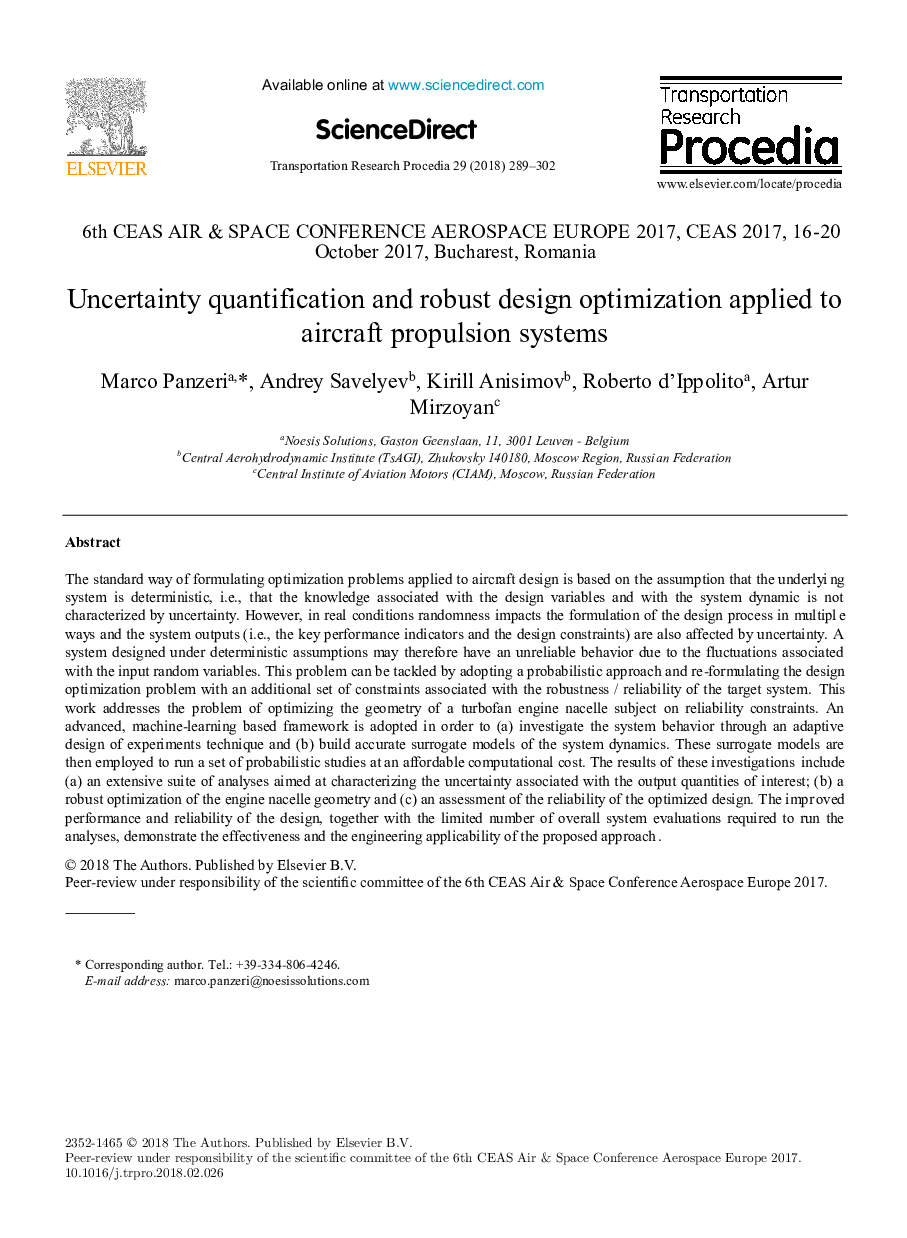| Article ID | Journal | Published Year | Pages | File Type |
|---|---|---|---|---|
| 8961084 | Transportation Research Procedia | 2018 | 14 Pages |
Abstract
The standard way of formulating optimization problems applied to aircraft design is based on the assumption that the underlying system is deterministic, i.e., that the knowledge associated with the design variables and with the system dynamic is not characterized by uncertainty. However, in real conditions randomness impacts the formulation of the design process in multiple ways and the system outputs (i.e., the key performance indicators and the design constraints) are also affected by uncertainty. A system designed under deterministic assumptions may therefore have an unreliable behavior due to the fluctuations associated with the input random variables. This problem can be tackled by adopting a probabilistic approach and re-formulating the design optimization problem with an additional set of constraints associated with the robustness / reliability of the target system. This work addresses the problem of optimizing the geometry of a turbofan engine nacelle subject on reliability constraints. An advanced, machine-learning based framework is adopted in order to (a) investigate the system behavior through an adaptive design of experiments technique and (b) build accurate surrogate models of the system dynamics. These surrogate models are then employed to run a set of probabilistic studies at an affordable computational cost. The results of these investigations include (a) an extensive suite of analyses aimed at characterizing the uncertainty associated with the output quantities of interest; (b) a robust optimization of the engine nacelle geometry and (c) an assessment of the reliability of the optimized design. The improved performance and reliability of the design, together with the limited number of overall system evaluations required to run the analyses, demonstrate the effectiveness and the engineering applicability of the proposed approach.
Keywords
Related Topics
Social Sciences and Humanities
Social Sciences
Safety Research
Authors
Marco Panzeri, Andrey Savelyev, Kirill Anisimov, Roberto d'Ippolito, Artur Mirzoyan,
